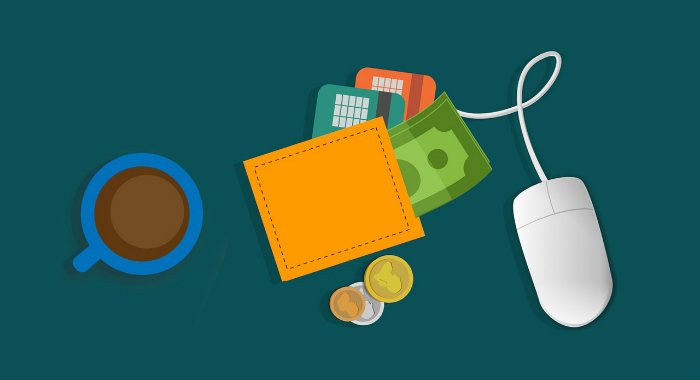Credit control refers to a system used by businesses to ensure that credit is given to eligible customers who can pay and pay within the agreed duration.
It is a small section in the financial control system used by businesses to ensure that upon a sale, funds are released when the sum is paid.
The objective of credit control is to ensure that businesses do not become illiquid as a result of un-coordinated issues of credit to clients. It is a significant system of control since it enables avoidance of lending or financial issues from unworthy customers in the business.
Credit control is an elaborate control system that has proved its effectiveness in many ways. As a matter of fact, it is very precise in the approach utilized.
The procedures must be followed and approved by the senior management before releasing it.
Lost the buzz for your business?
Starting a business is exciting. Succeeding is rewarding. The bit between is hard, repetitive, and full of self-doubt.
The Lonely Middle Club (From Business4Beginners) helps you through it:
Get support and advice from other small business owners
Remove the self-doubt that’s holding your business back
Learn techniques and strategies to grow your business faster
Be inspired with our exclusive ‘swipe’ file and AI-powered tools
No pressure – work at YOUR pace, towards YOUR goals
—
The Credit Control Process
Essentially, a good system contains the following sections; approval, limit approval and dispatch approvals.
In larger companies, the process involves the senior manager, and various terms have been used to describe the process. The process takes a specified duration before the collection date, and the credit processes entail knowing your customer, account opening, approval and amount.
The process involves the customer first making an application for credit. Then, it is the finance departments responsibility to review the request and make a decision whether to grant or reject that request.
Risk managers are sometimes consulted to evaluate the risk and the credit collection period determined.
These processes apply before extending credit to a customer to avoid the risk of default that can result into huge pecuniary losses. Credit control is very important for small businesses because for them to grow, they must grant it to customers who can pay and pay on time.
Credit Control Helps Liquidity
In addition, credit control enables small businesses to maintain the required financial liquidity since converting stock into cash can be impossible in a day.
Issuance of credit is risky but at the same time it can spur growth of a small business. It does this by increasing sales and bad debts that would result if there is no efficient control system.
Credit control, therefore, ensures that the business has an improved and consistent cash flow that enables smooth running of the organizations activities.
Credit Control Improves Accountability

Proper management of cash flow facilitates efficiency and promotes accountability in a business. In fact, good control avoids issues relating to debt collection.
Debt collection can strain the business and lead to company failure.
It is time-consuming, expensive and can result into heavy financial losses if the borrowers defaults in payment. Such defaults have failed many small businesses. Moreover, proper control of cash flow ensures that the activities of the company are financed continuously because the company cannot lack finances to undertake operations.
Credit control is, therefore, very critical to any business especially those in the manufacturing industries particularly in the UK.
It promotes customer loyalty, and businesses use the strategy to explore new markets where competition is very stiff.
Credit Control Helps Identify ‘Good’ Customers
Do you know which of your customers are ‘good’ customers?
We don’t mean which are most likely to put in an order or which ones spend the most (though these can also be important!).
We mean understanding which customers are least likely to fall behind in repaying their credit. Or, better yet, which customers repay their credit ahead of time.
Only with a good credit control mechanism in place can you really start to get a picture of who your best customers are in terms of credit.
Once you have a better picture you can ensure you focus more time on growing relationships with these customers. After all, a fast-paying customer helps improve your cash flow and is, therefore, someone you want to do as much business with as possible!
While you may still wish to accept orders from a customer who doesn’t easily keep to the payment terms, you may be less likely to accept larger orders. You may also be able to better plan for when the money is likely to hit if you know, in advance, that the payment deadline may not be met.
Credit Control Helps Future Planning
We touched on it in the last section but good credit control procedures also help you plan for the future.
If you know that customer X owes £1000 but is usually late in paying money owed, whereas customer Y owes £500 but always pays early, it can help you better predict when money will be in your account.
That then allows you to create better forecasts and plan for ordering more stock or even knowing when to pay your own bills and outstanding invoices.
Outsourcing Your Credit Control
We’ll be the first to admit it. Credit control isn’t exactly the most exciting function of a business.
For one, it can be really awkward setting terms and then chasing payments. No one likes asking for money even when it is rightfully owed to you.
However, credit control isn’t just a necessary evil, it’s essential for the long-term health of your company.
But, it isn’t something you necessarily have to do yourself. Nor do you need to hire an employee to do it for you.
Many people choose to outsource their credit control to external providers. This offers numerous advantages:
- You can focus on growing your business instead of chasing money owed
- You avoid the awkwardness of having to ask people for money
- Customers are less likely to hold you responsible for the regular emails and calls
- You get some form of reassurance that funds will be available when you need them
- The people doing the chasing are likely to be more skilled in chasing and persuading
So, you can see why outsourced credit control is very appealling, especially for small business who, quite frankly, have better things to be doing!
Another benefit of outsourcing is that you can get the help needed to implement the correct credit control procedures in the first place.
A 3rd party is less emotionally involved and therefore, more likely to make rational decisions based on facts. As a human being, it’s only natural that you might want to extend better terms to customers you like, and stricter terms to customers you don’t.
But this approach is flawed and destined to fail. Outsourcing credit control mostly removes this human flaw that exists in us all as the people dealing with it do not know the customers personally. They can only make their decisions based on what they see on paper.






